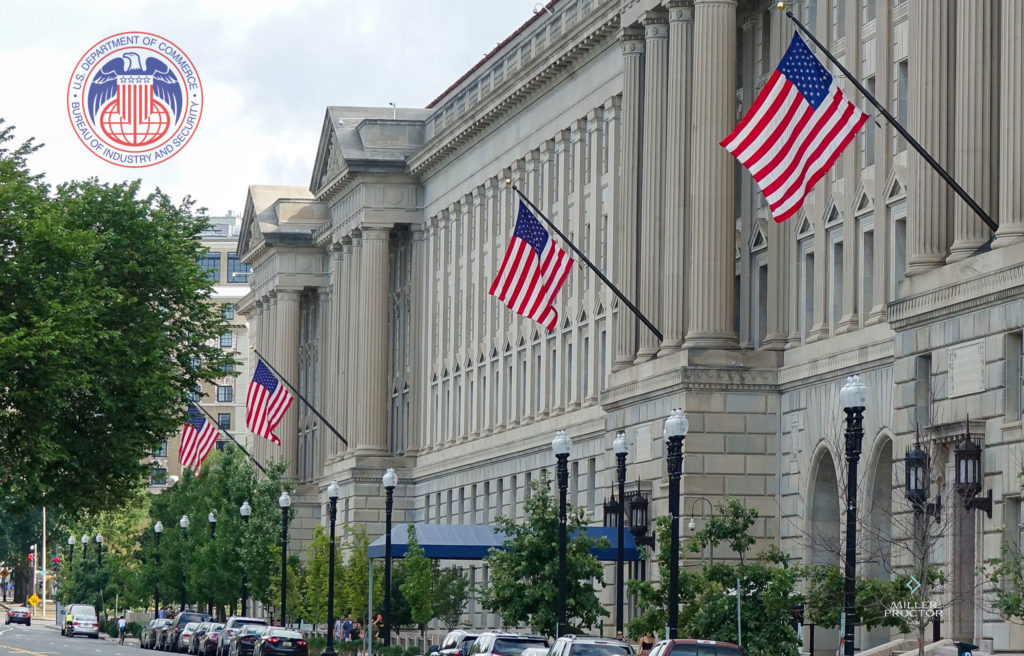WASHINGTON, D.C. – Today, the Department of Commerce’s Bureau of Industry and Security (BIS) imposed a civil penalty of $44,750 against Airbus DS Government Solutions Inc. (ADSGS), a satellite communications and networking systems company located in Plano, Texas, to resolve three violations of the antiboycott provisions of the Export Administration Regulations (EAR), as alleged in BIS’s Proposed Charging Letter. ADSGS voluntarily self-disclosed the conduct to BIS, cooperated with the investigation by BIS’s Office of Antiboycott Compliance (OAC), and took remedial measures after discovering the conduct at issue, all of which resulted in a significant reduction in penalty.
“Our antiboycott rules against furnishing prohibited information and failing to report boycott-related requests apply with the same force even when another U.S. company is the one making the information requests,” said Assistant Secretary for Export Enforcement Matthew S. Axelrod. “U.S. companies are reminded to be vigilant in examining all transaction documents, regardless of the source, to ensure that the terms and conditions comply with our antiboycott rules.”
Case Background:
As part of the settlement with BIS, ADSGS admitted to the conduct set forth in the Proposed Charging Letter, which alleged that ADSGS violated the antiboycott provisions of the EAR by furnishing information about its business relationships with boycotted countries or blacklisted persons and failing to report the receipt of a request to engage in a restrictive trade practice or foreign boycott against a country friendly to the United States. Specifically, ADSGS participated in a trade show in Kuwait in 2019. In connection with the shipment of products and items for display at the trade show, the company furnished to its freight forwarder a commercial invoice/packing list certifying that the goods were not of Israeli origin and not manufactured by a company on the “Israeli Boycott Blacklist.” Furnishing such information is prohibited by Section 760.2(d) of the EAR. In addition, the company failed to report to BIS the receipt of the request to furnish this information, as required by Section 760.5 of the EAR.
The Order, Settlement Agreement, and Proposed Charging Letter are available here.
Additional Information:
These BIS actions were taken under the authority of the Anti-Boycott Act of 2018, a subpart of the Export Control Reform Act of 2018, and its implementing regulations, the EAR. The antiboycott provisions set forth in Part 760 of the EAR discourage, and in certain circumstances prohibit, U.S. persons from taking certain actions in furtherance or support of a boycott maintained by a foreign country against a country friendly to the United States (an unsanctioned foreign boycott).
In addition, U.S. persons must report to OAC their receipt of certain boycott-related requests, whether or not they intend to comply with them. Reports may be filed electronically or by mail on form BIS 621-P for single transactions or on form BIS 6051P for multiple transactions involving boycott requests received in the same calendar quarter. U.S. persons located in the United States must postmark or electronically date stamp their reports by the last day of the month following the calendar quarter in which the underlying request was received. For U.S. persons located outside the United States, the postmark or date stamp deadline is the last day of the second month following the calendar quarter in which the request was received. Forms for both electronic transmission and mail submission may be accessed from the forms request page.
Pursuant to Section 764.8 of the EAR, a party may submit a voluntary self-disclosure if it believes that it may have violated Part 760 or Part 762 of the EAR (recordkeeping requirements relating to Part 760).
For additional information regarding the application of the antiboycott provisions of the EAR, please contact the OAC Advice Line at (202) 482-2381 or through the online portal.


